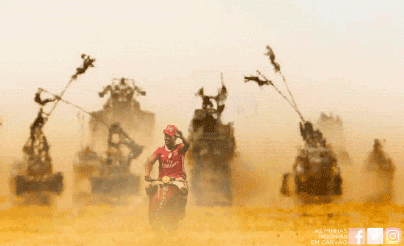At first glance,
Sheriff’s story may have the air of a fairy tale, but the details — fittingly — are rendered in shades of gray. Tiraspol, the city where the team is based, may be in Moldova as far as UEFA, European soccer’s governing body, is concerned. Sheriff may be the current, and essentially perennial, Moldovan champion.
…..
Its team is full of imports, drawn from Africa and South America and much of Eastern Europe, while its rivals can only afford to field locals. “It rarely buys players for big money,” said Leonid Istrati, a prominent agent in Chisinau, the Moldovan capital. “But only Sheriff can afford good level players. Before, a few other teams could. Now, they can’t.”
…..
Its roots, reportedly, lie in the region’s
historic smuggling. Transnistria’s liminal status, its porous borders and its opaque history — it is home to one of Europe’s largest weapons dumps — have long made it a haven for all manner of illicit activity, from gunrunning to drug-trafficking and cigarette counterfeiting.
In 2006, the European Union’s border monitoring force estimated that if the territory’s import statistics were accurate, every single person in Transnistria was eating more than 200 pounds of frozen chicken legs every year. Even Sheriff’s founder, Viktor Gushan, has admitted that his company has had to operate “
between things.”
Now, though, Sheriff — the conglomerate and the club — is everywhere. It runs a chain of supermarkets. It runs gas stations. It has a winery and a television channel and a phone network. “It is important to remember that the Transnistrian area works entirely for Sheriff Tiraspol,” said Ion Jalba, a journalist and commentator in Moldova. “In Tiraspol, everything is controlled by this company. There are Sheriff shops and Sheriff fuel stations. The soccer club is like a child fed by the whole separatist area.”
…..
“The people who run the club do not care about the money,” Testemitanu said. “They already have money. They do not need $20 million. They control a whole country. It is about reputation, about being in that top league, in the Champions League.”
Now that Sheriff is there, though, now that it has finally made it, all that happens is that the difference is entrenched. The last wisps of the final shade of gray disappear, and everything becomes black and white.
This is what Sheriff has been waiting for; it is what the rest of Moldovan soccer might have been dreading. It crystallizes the inevitability of Sheriff’s winning the league, again and again, into perpetuity. Watching from Moldova, it is not a fairy tale about a plucky hero, but quite the opposite. It is the final victory of the giant. “For Moldovan football,” Jardan said, “this is the end.”

